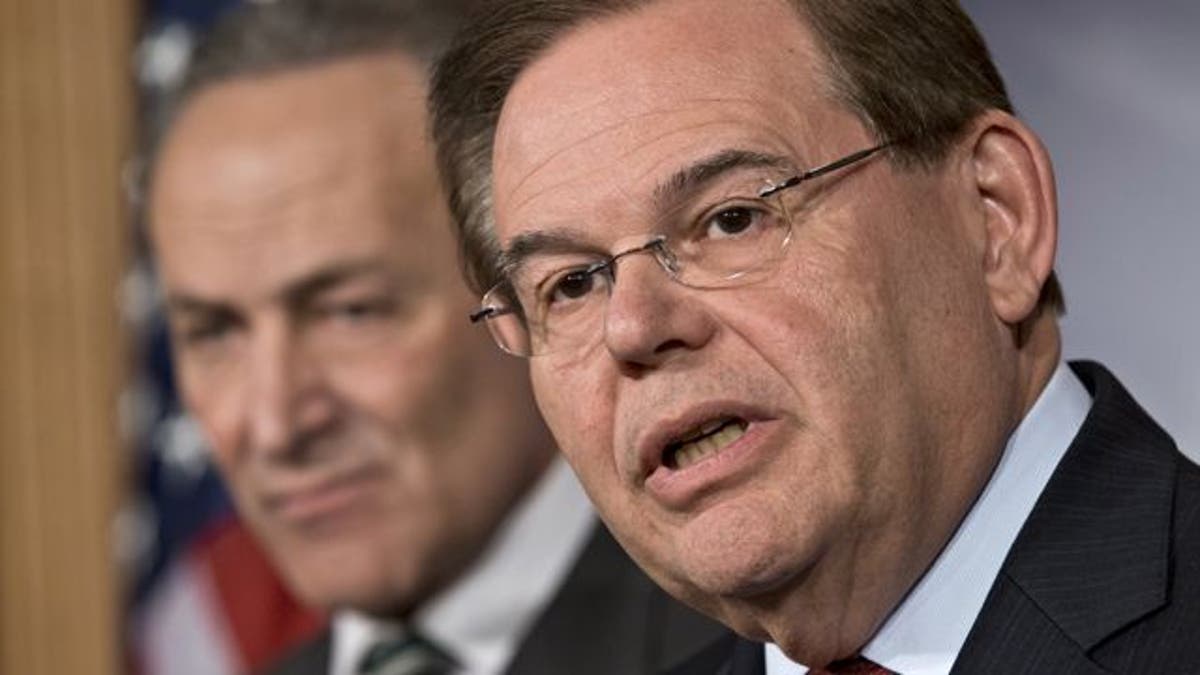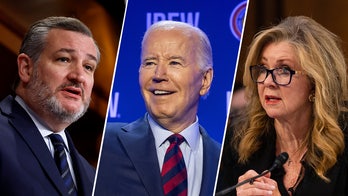
Sen. Robert Menendez, the chamber’s top foreign policy official, just returned Wednesday evening from a fact-finding mission to the Ukraine, where Moscow-backed separatists have been fighting government troops since mid-April.
In a wide-ranging interview with Fox News Latino, Menendez, who is chairman of the Senate Foreign Affairs Committee, spoke Thursday about Ukraine, Russian President Vladimir Putin and the Islamic State militants, who have taken over parts of Syria and Iraq and beheaded two U.S. journalists in as many weeks.
Menendez, D-New Jersey, also addressed the criticism by many Republicans and some Democrats that the Obama administration has been too slow to react to percolating foreign policy situations in the Middle East and the Ukraine, among other places.
Russian Aggression In Ukraine
You just returned from the Ukraine. What can you tell us about what you found on your trip?
Menendez: The Ukraine, from my perspective, is under invasion. Thousands of Russian troops have gone into Ukraine, directly engaging the Ukrainian army. They’ve used columns of tanks, armored vehicles, surface-to-surface missiles. The reality is that this is an invasion.
What do you think should be done in response?
Menendez: The Ukranians are fighting, but they’re out-manned and out-gunned. We need to change the calculus for Putin about his aggression, figuring that now he’s sized up the West and says to himself that we’re not going to levy the most difficult sanctions.
We have to understand who we’re dealing with. He continues his aggression. He was a KGB agent and is a great admirer of Peter the Great. And Peter the Great was “great” because he expanded the Russian empire.
When you see a threat, the sooner you deal with it, the more decisively you deal with it, the better.
Our response has to be more vigorous, more robust [than it has been], there needs to be an expansion of sanctions.
We [the U.S. and Europe] need to help the Ukranians defend themselves [by providing them] with more sophisticated weapons. We’ve given them night goggles, but what good are they if you can see something but can’t stop them?umen
This is a watershed moment, not just in the context of Ukraine – Putin is fighting Europe on Ukranian soil. Everything he hates about Ukrainians looking westward is about Europe.
The Europeans have to decide how far they are going to let him go. He already did this in Georgia, in Crimea, and other places. He has a history.
How do you think the U.S. has handled this so far?
Menendez: The answers have not been strong enough. Weakness invites provocation. Strength stops it.
The Islamic State
Many people are saying that President Obama has not been assertive in dealing with ISIS. They criticized him when he said that his administration did not yet have a strategy for how to deal with ISIS’s aggressive moves and brutal attacks in Syria and Iraq. What do you think about how the president has handled ISIS so far?
Menendez: When the president said we don’t have a strategy, it’s not that we don’t have one, it’s that we haven’t yet decided on one. It was a poor choice of wording.
I know we’ve been working on what kinds of coalitions we’re going to build [to respond to ISIS]. ISIS is a national security threat. The beheadings show how ruthless they are, it shows their barbarity and antipathy toward Americans.
The execution of Iraqi troops, the swiftness with which they’ve been able to gain territory – all that together with the fact that they’re operating over a large swath of unregulated land mass in Syria and Iraq. They could try to launch attacks against American interests, both abroad and here.
I’m for a robust role in ultimately seeking to weaken but ultimately destroy ISIS.
We have to listen to the military people, who understand what’s the right strategy.
Some members of your own party, such as Sen. Dianne Feinstein [D-Calif., head of the Senate Intelligence Committee], have publicly said that President Obama has been too cautious in dealing with ISIS. Do you disagree with that?
Menendez: I think the president is cautious because he doesn’t want to engage us in another Iraq or Afghanistan. By the same token, when you see a threat, the sooner you deal with it, the more decisively you deal with it, the better.
I’m hoping that the strategy they’re finalizing is both pervasive and that it destroys ISIS. With Al-Qaeda, we took out the leadership, with ISIS we should do the same.
So you agree with how the Obama administration has responded to ISIS so far?
Menendez: I’m not ready to cast judgment. From everything I hear, I understand, from my discussions with the Defense Department, they’ve been devising options and looking at strategies.
They have to go before my committee for authorization for any use of force.
When I see the strategy they’re considering, I’ll know if it seems right.
Would you support one that includes boots on the ground?
Menendez: I’m not inclined to want boots on the ground, but I have to listen to what their strategy ultimately is – whether it’s using special operations forces, or something more broad.
Here we have a specific goal. This is not about nation-building. It’s about taking out a terrorist group.




